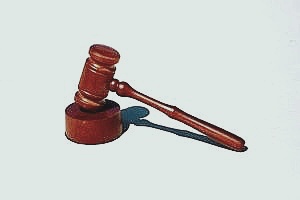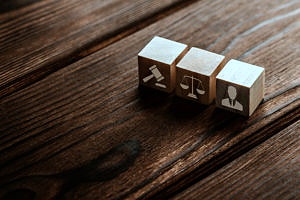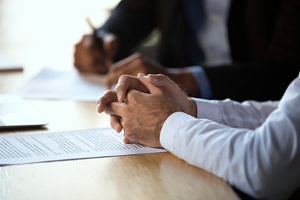 Each year, many people are injured when they slip and fall; often, this injury occurs when someone slips, trips, or falls on someone else’s property. The injured party is often left wondering—who is responsible for a slip and fall accident? The injured may believe they are owed compensation by the property owner. It is true that slip and fall accidents that occur on someone else’s property may place liability on that property’s owner, but this is not always the case. If you have been injured in a slip and fall accident, understanding your rights and responsibilities is important.
Each year, many people are injured when they slip and fall; often, this injury occurs when someone slips, trips, or falls on someone else’s property. The injured party is often left wondering—who is responsible for a slip and fall accident? The injured may believe they are owed compensation by the property owner. It is true that slip and fall accidents that occur on someone else’s property may place liability on that property’s owner, but this is not always the case. If you have been injured in a slip and fall accident, understanding your rights and responsibilities is important.
Factors That Determine Liability
The most important factor when considering who is responsible for a slip and fall accident is determining liability through negligence or intentional neglect of a property’s care. If it was the property owner, then he or she would be responsible for the accident and could be held accountable. When considering liability, other factors also come into play, such as the condition of the property, any pre-existing knowledge of the danger, and the “reasonableness” of the property owner.
Condition of Property
One factor that determines the liability of a property owner in a slip and fall case is the condition of their property. Property owners are expected to regularly maintain and upkeep their property; if the trip or slip was caused by a dilapidated property feature that should have been repaired, a case may be made that the condition of the property was negligent. One example of this may be a communal hallway that residents must pass through that contains uneven carpet throughout the length of the hallway; this simple trip hazard is unavoidable by being in a communal area, and an owner doing a regular survey of the building would be expected to fix this issue.
Put Someone at Risk
 In some cases, an argument can be made that the property owner directly put the injured at risk, which would make the owner responsible for the slip and fall. If the owner or an employee directly caused a spill, worn or torn area, or other dangerous or slippery surfaces, they can be held responsible if someone sustains an injury because of it. An employee who spilled oil that a resident slipped on would indicate liability.
In some cases, an argument can be made that the property owner directly put the injured at risk, which would make the owner responsible for the slip and fall. If the owner or an employee directly caused a spill, worn or torn area, or other dangerous or slippery surfaces, they can be held responsible if someone sustains an injury because of it. An employee who spilled oil that a resident slipped on would indicate liability.
Environmental Conditions
While property owners are not responsible for the weather, they are responsible for how their building is affected by the weather and measures taken to accommodate. An owner is expected to remedy any dangerous results of weather conditions for residents. Other hazards such as faulty or absent lighting or physical obstacles are also the responsibility of the building owner. A building that does not route its gutters away from residents’ doorsteps may be liable for a slip and fall that occurred as a result of water or ice across a resident’s entryway.
Knowledge of Potential Risk
Any property owner who is aware of a potential risk but fails to adequately and timely make repairs may be held responsible for a slip and fall accident. Maintenance issues that could pose a risk include cracked stairs, uneven flooring, broken lights, unmarked holes, or wet areas. Management may become aware of these areas through inspection or resident and visitor reports.
Actions Taken to Mitigate Risk
 Some property owners take action to mitigate the risk of an environmental hazard, but a person may slip and fall anyway. In these cases, the specifics must be considered; if the property owner’s measures were reasonable and they can demonstrate that nothing further could be done to reduce the risk of a slip and fall, they are less likely to be liable. They must be found negligent in order to be held accountable for a fall; if the owner did his or her due diligence to repair a problem, liability will be harder to prove.
Some property owners take action to mitigate the risk of an environmental hazard, but a person may slip and fall anyway. In these cases, the specifics must be considered; if the property owner’s measures were reasonable and they can demonstrate that nothing further could be done to reduce the risk of a slip and fall, they are less likely to be liable. They must be found negligent in order to be held accountable for a fall; if the owner did his or her due diligence to repair a problem, liability will be harder to prove.
Was the Accident “Reasonable”?
Most negligence claims rely on whether or not a property owner has made reasonable attempts to prevent slips and falls. “Reasonable” is typically evaluated using the following criteria:
- Has an issue been present long enough that an owner should have seen it?
- If the trip was caused by an object left by the property owner or an employee, was there a reason it was still there, or should it have been removed?
- Did poor lighting play a factor in the injury?
- Was there—or could there have been—a barrier or warning placed?
- Did the owner already know of the issue?
Contact A Personal Injury Attorney at The Brown Firm
If you have suffered an injury after a slip and fall accident on someone else’s property, getting the compensation you deserve can be challenging. The Brown Firm is experienced in civil litigation and can assist you in determining the responsible party in your injury case and getting you the reimbursement you deserve.

